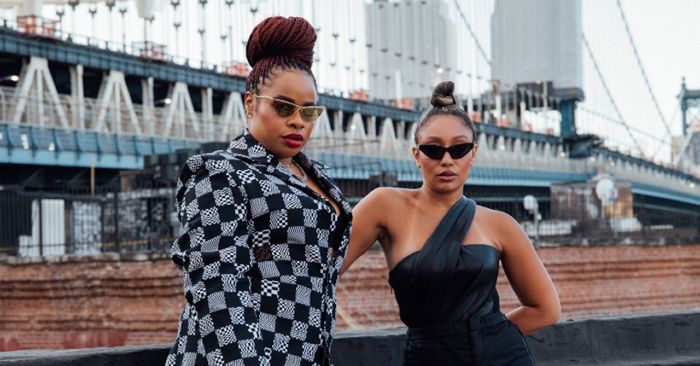
Black Makeup Artists on Championing Diversity and Pay Equality in the Industry
I’d love to start by talking about how you both got your start in the makeup industry.
BW: I started in makeup randomly! I actually went to school for interior design. I worked at Ralph Lauren for a bit but it’s definitely different. Those kinds of clients would have very different trust issues. When you’re doing someone’s home, you really have to respect their likes and interests. Whereas—not that you can’t with makeup—but, I think because makeup is outward-facing and the world is perceiving it and judging it, someone is more likely to like trust you in that sense. Trends are always changing and people trust you to know what looks good. When you’re home, you just want to feel good at home. So I was having an interesting time navigating that language with different clients. Then I got into [makeup] one way or another and I think I just always liked it, but I thought I’d [work] on the business side of it because I had so much intel from Ralph Lauren. But then, I don’t know, I just found that I really liked it. I feel like you always just fall into it—you never really plan for it.
AA: I got my degree in public relations, but then I realized that’s not what I want to do. I started thinking about how I could make money and makeup was always something that was an interest of mine. Looking back on it, I used to sneak into my sister’s room when she was asleep and play at the foot of her bed with her MAC makeup so obviously it’s always been in me—I just never connected to it until it later. I moved to New York and went to makeup school mainly to figure out exactly what I wanted to do in makeup because I didn’t really know. I assisted [for a while] and then I moved to L.A. where the sun always shines.
What inspired the idea for this podcast and when did you both decide that you wanted to do this?
AA: It was kind of random actually. It started because I’m trying to get out of the makeup artist space and more into the content-creating space. So in an attempt to do that, I told my PR girl I wanted to start doing guest spots on podcast and she was like, “Okay, how about you have a podcast?” I was like, “This just escalated a lot.” But then I thought about it. I told Brittany and we started getting into a full-on conversation. It started off [with] something beauty-related and then we were talking about relationships, marriage, and stuff like that, and then somehow it still came back to beauty at the end of the conversation. That’s when I was like, “Do you want to do this podcast with me?” And she said yes. That’s where it started.
BW: I feel like we both also have great info and we work with great clients. We have very interesting perspectives on a lot of different things and they both match up but are also different at the same time. We honor each other in our banter even if we don’t agree. I feel like it just works.
Let’s talk about the latest episode Black on Set! I love this episode. Some of the situations discussed on the show are just crazy. Can you think of any more instances where your job felt like an uphill battle just because you were Black?
BW: I feel like I’m always advocating for talent with a deeper complexion and I feel like producers will book me thinking that I’m a quota that’s filled because I’m Black. I know that there’s colorism involved. I have issues sometimes with checking people on set. They don’t think that it’s going to come from me—especially when it comes to lighting. We talked about this on one of our episodes. I’ve definitely had sets dismantle their lighting because they’re not lighting Black people right. And then in the moment, it falls on you because somehow it’s your fault. Or they’ll say that the makeup is shiny but it’s not—she’s a powdered donut. Then I’m like, “Actually, your light is right in front of her face so maybe something needs to be adjusted.” It’s the way that I speak up and try to advocate when I don’t think that they booked me for that. They booked me thinking, “Okay, we’ve done our job.”
That’s a huge part of the problem. Some people have a problem with someone speaking up and trying to advocate for more diversity. They don’t realize that by reacting in that way, they’re being incredibly racist.
BW: Right!
AA: You know what I didn’t talk about on this episode? Post 2020, brands are trying to be more diverse so they want to hire more Black and Brown artists, but at a lower rate than what they would hire a white artist for. I had a brand reach out to me to help develop the colors of a launch and they wanted to pay me $1,500. My agent was like, “You want her to help you develop a shade range for a foundation that you’re coming out with and you want to pay her $1,500?” It was about to be in Sephora. He went back and forth for a bit and he finally got them up to maybe $5,000 because I liked the brand. They ended up going behind my back and hiring someone else who ended up working for pennies. They still treated them like an afterthought. It definitely is still giving the vibe of “We did this because it’s the right thing to do.”